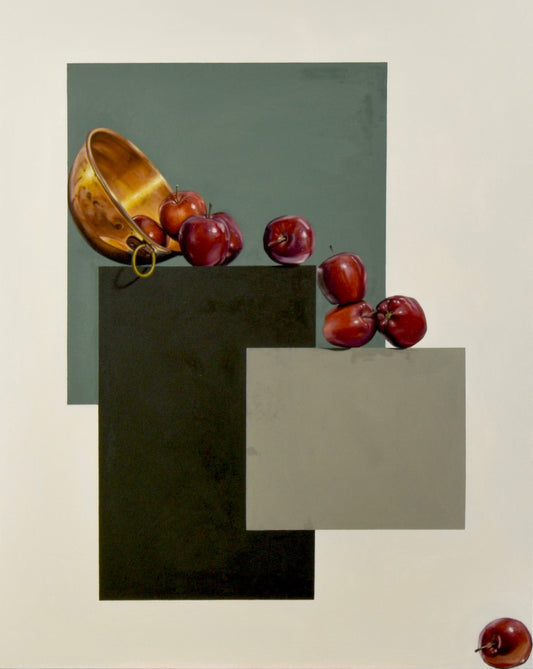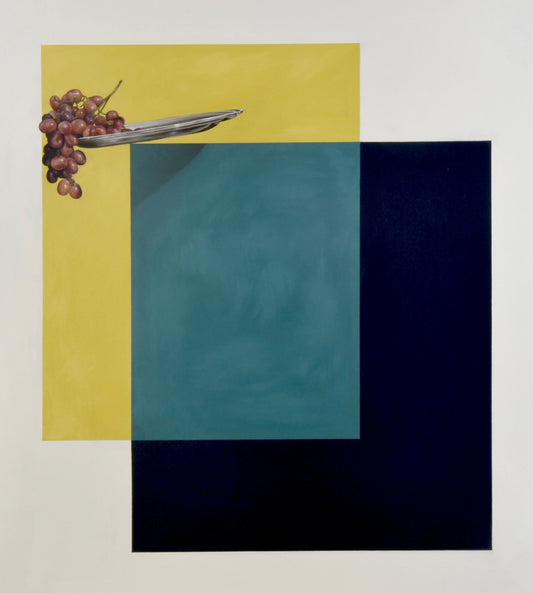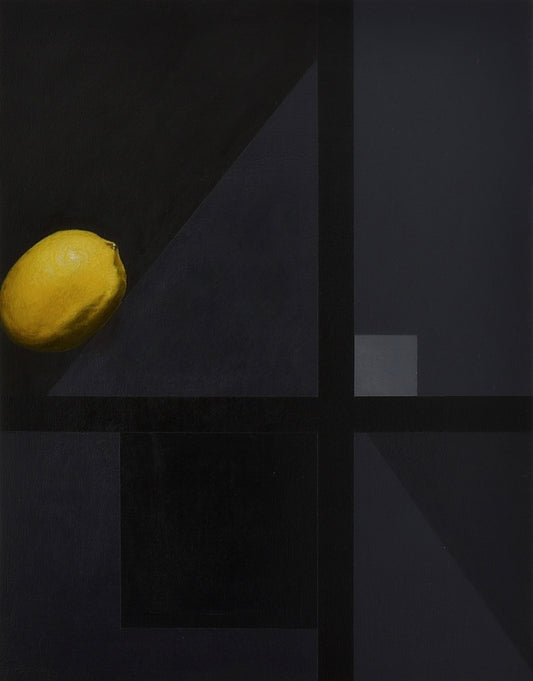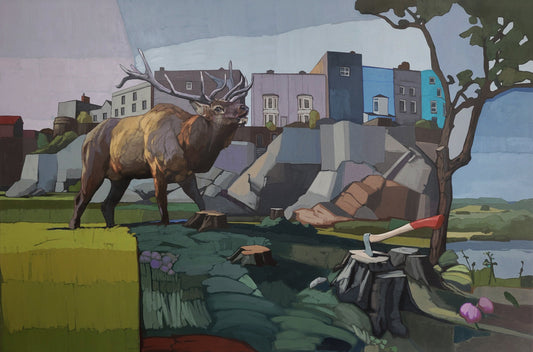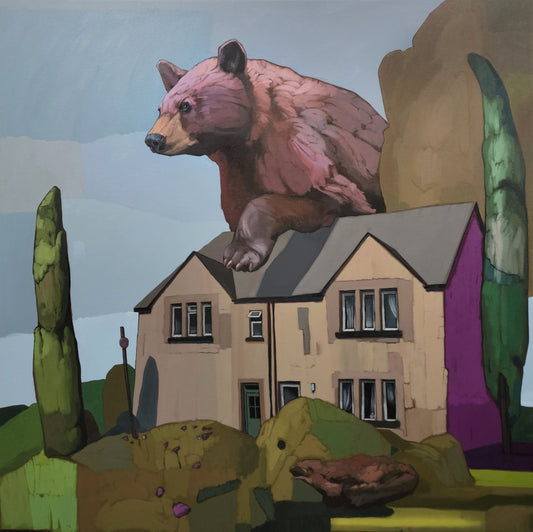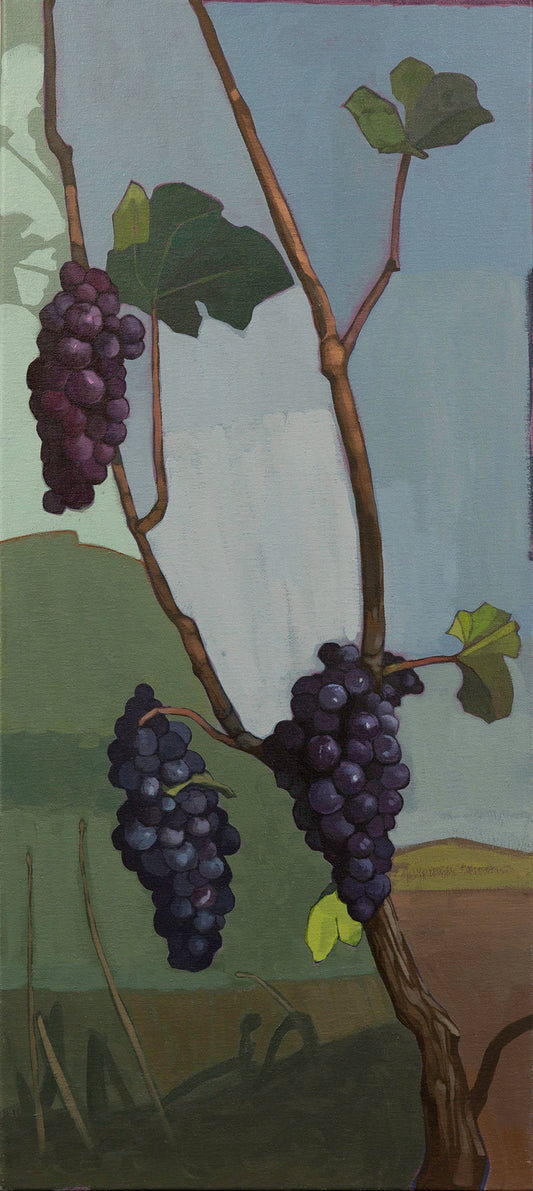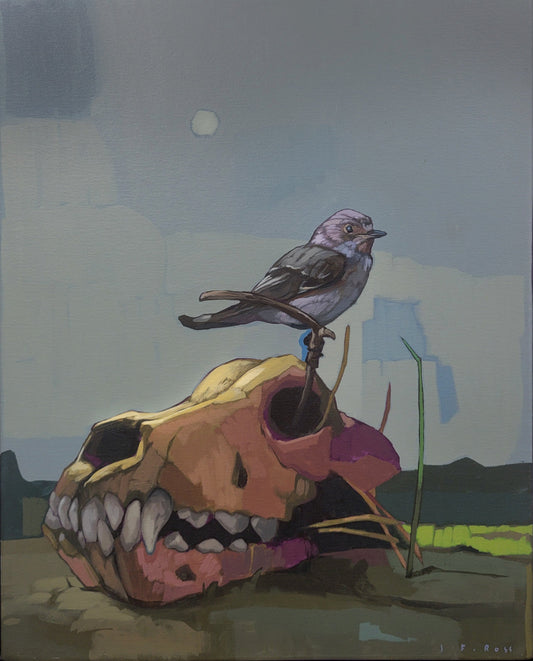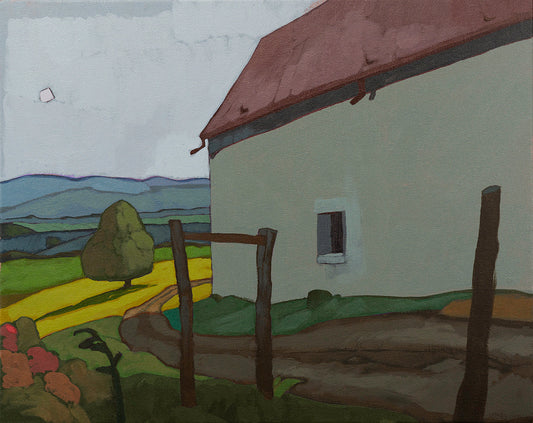B R E A C H | Oct 19 - Nov 2nd
Nick Rooney
-
 Sold
SoldRedemption
Regular price £1,379.00 GBPRegular priceUnit price / per
John F. Ross
-
Alignment Problem
Regular price £2,868.00 GBPRegular priceUnit price / per -
 Sold
SoldOwen Point
Regular price £717.00 GBPRegular priceUnit price / per -
Real French Grapes
Regular price £1,048.00 GBPRegular priceUnit price / per
Nick Rooney
My painting practice focuses on the dialectic between realism and abstraction. I am interested in how painting as a visual language can produce such seemingly contradictory results, the convincing illusion of volumetric forms, and the extreme simplification of flat shapes. The resulting tension of combining a classical still-life with a minimalist geometric shape creates an opportunity to examine how we attach meaning to the objects around us. The more one looks, the more disorienting the experience. The objects in my work are set at an angle they are denied a stable footing in space, pulling away from their historical setting and context. Further, its relationship to abstract shapes sets up a dialogue that can make us think about how we experience pressure, weight, gravity, and light.
I am greatly influenced by and stimulated by art history. In examining museum collections, I seek out objects with rich historical and narrative meanings that somehow resonate with me. With admiration for illusionism, I am captivated by the brilliant techniques of 17th-century Dutch still-life painting. I am also drawn to sculpture from antiquity to the late 19th century. At the same time, I am very interested in the emergence of abstraction. I am aware of the denial of meaning in formalist criticism, yet I am convinced that even the most simplified shapes reflect a need to believe in more than what we can see, offering a space to contemplate emotions.
By bringing together on one canvas both my passion for historical representation and minimalist geometric abstraction, I am trying to stimulate a deeper understanding of human nature. By heightening our awareness, painting can help us to be more reflective as we try to comprehend the fragmented perception and uncertainties of our times.
John F. Ross
Stewardship is a modus operandi that has never been a collective priority of our human species since we achieved a scale of environmental impact that called for it. As industry and populations grow, the demand we place on the finite resource that is this world grows in turn and so the rift between us and the natural world deepens. To prioritise and maximise the stewardship of our environment is a contract we unwittingly entered into nearly two centuries ago with the rest of our companions with whom we share this precarious condition called life - a contract we are increasingly in breach of. Now, With a growing storm of existential problems on the horizon, the need for true stewardship presses ever harder against the borders of our self indulgence. We must find the courage and willingness to gaze together into the fullness of time with a unified and stalwart conviction that we must do always what is best for the preservation of life in all its diversity and majesty.

